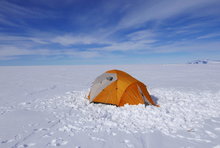
December 31, 2018
Ted Daeschler, PhD, professor in the Department of Biodiversity, Earth & Environmental Science, reports on his fourth week in Antarctica...
Read More

December 11, 2018
The Drexel University Center for Public Policy debuted the latest edition of Drexel Policy Notes titled Climate Change and the Future of the North American City at the Philadelphia Citizen's Ideas We Should Steal conference on November 30, 2018. The Issue brings together 15 of Drexel's environmental experts to weigh in on what Philadelphia may look like in 2100.
Read More
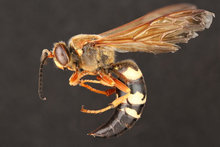
August 01, 2018
“Ant-Man and The Wasp,” sequel to Marvel Cinematic Universe’s 2015 “Ant-Man,” is in movie theaters this summer. Wondering how the superheroes compare to real insects, we checked in with the Academy’s Entomology Department, which houses 3.5 million insect specimens – a treasure for researchers around the world.
There we found Robert Conrow, an affable Drexel PhD student and teaching assistant who studies crane flies with Entomology Curator Jon Gelhaus, PhD, a world expert. Gelhaus also is a professor in Drexel’s Department of Biodiversity, Earth and Environmental Science. Conrow says crane flies would make terrible superheroes “because their long legs easily fall off in the slightest breeze.”
Read More
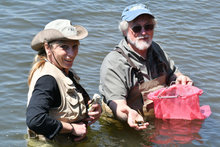
May 17, 2018
Freshwater mussels and shad were once plentiful in the Delaware Estuary and its tributaries, providing a range of natural benefits to people and waterways. Today they face an uncertain future in local streams and rivers, creating a serious disadvantage when it comes to ecological health.
Now, the Academy of Natural Sciences, the College of Arts and Sciences of Drexel University, the Partnership for the Delaware Estuary, Philadelphia Water Department and Department of Parks and Recreation, Bartram’s Garden, and the Independence Seaport Museum have come together to develop the Aquatic Research and Restoration Center to coordinate large-scale restoration efforts that do not currently exist in the Philadelphia region.
Read More
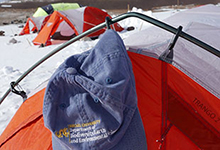
January 19, 2018
For most people, the thought of camping conjures images of leisurely hikes and starry nights cozied up to a campfire. For geoscience prof Ted Daeschler, PhD, it resembles something more like a two-day flight, followed by a noisy jaunt via military cargo plane, culminating in a 100-mile helicopter ride into the remote terrain and sub-freezing temperatures of Antarctica’s McMurdo Dry Valleys.
Read More

January 17, 2018
A sixth-grade science fair project in 2014 led to the discovery that erythritol, the main component of Truvia, is a natural insecticide. Today, that discovery is the basis of a new Drexel-backed startup, BioLogic Insecticide. Simon D. Kaschock-Marenda, now a freshman at Drexel in the College of Engineering, was 11 when he noticed that Drosophila melanogaster, commonly known as fruit flies, died much quicker when they fed on Truvia than on other sweeteners. His father, Daniel Marenda, PhD, professor of biology in the College of Arts and Sciences, was unconvinced at first.
Read More
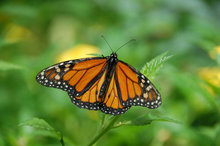
January 11, 2018
The typical images that “climate change” conjures include disappearing coastlines and melting polar ice. But what about animals’ brains — including our own? Can they be affected by the changing climate? Sean O’Donnell, PhD, professor in the College of Arts and Sciences, argues that they absolutely can.
Read More